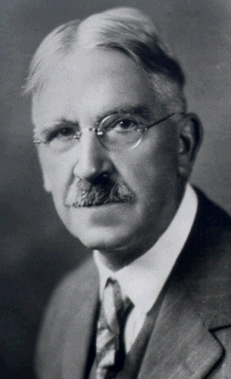Name: John Dewey
D.O.B/D.O.D: Oct. 20,
1859 – June 1, 1952
Profession:
American Philosopher, Psychologist, Educational Reformer
Some Famous Works:
Human Nature (1917), Conscience and Compulsion (1917),
Human Nature and
Conduct (1922), A Common Faith
(1934)
The piece that I
analyzed was from the document called Conscience
and Compulsion (1917).
“One of my most depressing experiences in connection with
this matter was the number of young men who when war was actually declared
merely clumsily rolled their conscience out from under the imperative of “Thou
shalt not kill” till it settled under the imperative of “Obey the law,”
although they still saw the situation exactly as they had seen it before”.
To begin, John Dewey did not want to enter the war. He
opposed it. He thought it would disrupt the progressive movement. In addition,
he thought the war would have a negative impact on American society and only
the industrialists and bankers would benefit.
The excerpt that I chose above was very interesting to me. At
first, he was describing the way he felt when all of these young men were sent
to war. It was depressing. The reason why was because Dewey thought that
America really did not have a sound reason to enter the war. As stated in the
quote, the soldiers first went to war because they were defending the concept
of “Thou shalt not kill”. They were fighting for the men that lost their lives
during the sinking of Lusitania. However, after the war their reason changed. “Obey
the law” was why they fought. In their prospective, the law allowed them to go
to war.
I also noticed that both reasons were from the Bible. “Thou
shalt not kill” is part of the 10 Commandments and “Obey the law” is from
Romans 13:1-7. The Bible tells you to follow the 10 Commandments but also to
follow the laws of the land. There are laws wherever you go therefore it was a
justification to enter World War 1.




Excellent post and noteworthy with respect to how the government will define religious freedom.
ReplyDelete